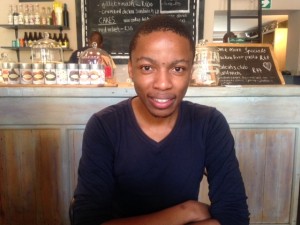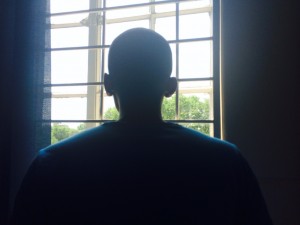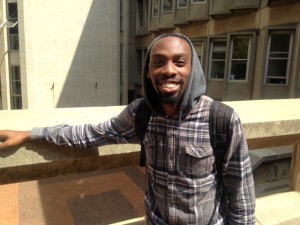The people who died at Sharpeville lost their lives because they’d dared to protest against the apartheid government’s pass laws, which restricted and controlled the movements of non-white people. In post-apartheid South Africa, pass laws don’t exist and everyone has the freedom of movement – technically. Yet gated communities now proliferate and areas policed by private security guards have become no go areas for the poor. This week Jo’burg’s Maboneng Precinct came under the spotlight when a protest by residents facing eviction broke out. PONTSHO PILANE asked Jo’burgers who frequent the area about freedom of movement and the shadow of Sharpeville.
Teboho Thamae, 22, events and communication host, Northgate
The Sharpeville Massacre shows the progression and intensification of the fight against apartheid. It also shows the fear and paranoia white people had about black people ultimately showing their power. I don’t think about the massacre often, until Human Rights Day is approaching and it makes me appreciate the the life I get to live in a democratic South Africa.
Although people don’t carry passes now there is a new way of limiting people’s access to places. In Braamfontein and the Maboneng precinct it is image and class. If you are not a hip-hop head or a hipster, these areas can be alienating. There is a certain image one needs to portray to access this space and it also has to do with the ability to afford being here. I have lived everywhere – town, kasi (townships) and in the suburbs – so it is easy for me to assimilate into these environments and not be chased out.
Tina Badu-Charles, 24, community host, Braamfontein
The events at Sharpville highlight a very significant part in the history of this country. Too many people had to die before apartheid ended – the apartheid government was so focused on not losing power that they even killed. As a young person this puts so much pressure on me to succeed, because what do I have to lose when people lost their lives? It shows resilience more than anything.
The new form of a dompas in the current South Africa is culture and the ability to morph into the right culture to survive. Braamfontein is mostly enjoyed by the artistic and creative crowd, and the idea of living an alternative lifestyle. I do believe that there are still subtle restrictions in place. There may not be as overt as the apartheid regime’s methods but they exist. For instance, I have been barred from booking a reservation in a restaurant because of who I am – it may have been my race or the way I dress. The only way to fight these restrictions is by pushing back at them and being militant in who we are.
Ndumiso Shabalala*, 35, entrepreneur, Hillbrow
White people are still pushing the social illusion that who and what they stand for should be the standard for everyone – that is why Sharpeville happened; it was a direct rebellion against white standards. They believed, and some still do, that black people are inferior and even black people have bought into this illusion. Braamfontein and Maboneng are a clear example of this. Just a few years ago you would never see so many people flooding into these areas because it was considered dangerous. But now there are markets and endless coffee shops, run and owned by white people, and this is now the coolest place to be. Race and class are now used to prevent people from being in certain areas. It’s a problem but what can be done?
Lwandle Fakazi, 23, student, Braamfontein
To be honest Sharpeville means nothing to me, and I think it means nothing to a lot of people. Why does it matter only on March 21st? Yes it happened, but why must people care? I think these commemorative days in history matter to the people that are involved with them on a daily basis – activists and politicians. The rest of us, who have our own lives to go on with, don’t really notice until it is happening or about to happen. People are too busy living their lives and building their own futures to be so concerned with history all the time. This may sound ignorant, but it is many people’s sentiments and I don’t think we should guilt people into caring about history.

![Nie Blankes Whites Only sign [wikimedia]](https://www.thedailyvox.co.za/wp-content/uploads/2015/03/Nie-Blankes-Whites-Only-sign-wikimedia.jpg)











